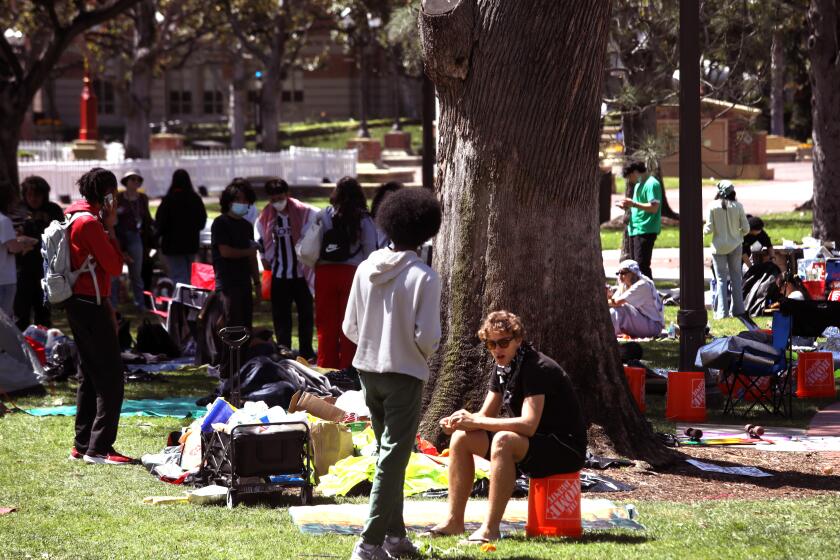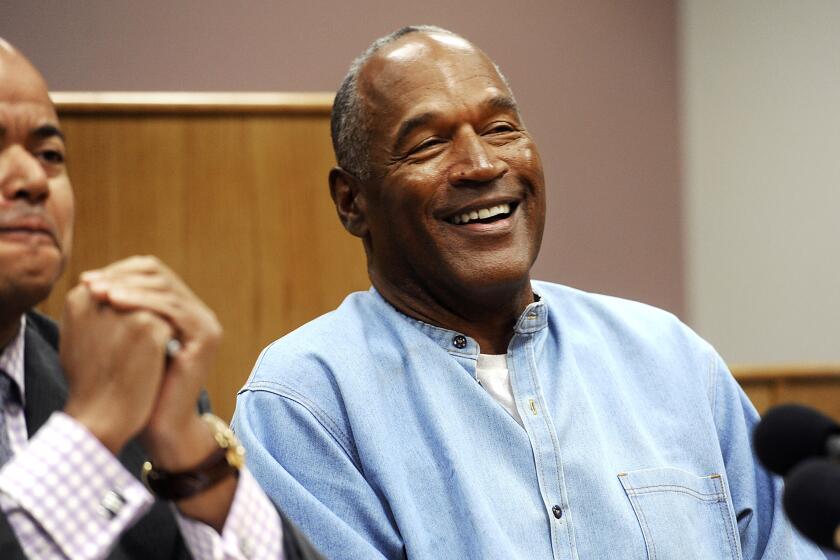Bob Hope Airport to ask FAA for approval of flight curfew
Officials who oversee Bob Hope Airport in Burbank decided Monday to seek federal approval of a controversial nighttime ban on flight operations -- restrictions, they assert, that will reduce noise in nearby communities and have little effect on other airports in the region.
The proposed curfew would prohibit flights by airlines, cargo operations, couriers and private pilots between 10 p.m. and 6:59 a.m. with exceptions for emergencies, law enforcement, medical flights and military aircraft. Currently, the airlines operate under a voluntary agreement not to fly between those hours.
“This is a historic day,” said Dan Feger, the executive director of the Burbank-Glendale-Pasadena Airport Authority, which operates Bob Hope. “No airport has asked for a federal restriction like this. We believe that hundreds of thousands of residents can obtain noise relief while keeping the airport viable.”
The proposal, however, has been the focal point of one of the most acrimonious homeowner battles in the San Fernando Valley out of fear that the curfew would shift flights from Bob Hope to Van Nuys Airport, increasing the noise problem there for nearby residents.
The authority’s nine-member commission unanimously approved the airport’s application to the Federal Aviation Administration as well as an analysis of the proposed curfew that was revised during the last several months.
If approved by the FAA, it would be the first time such restrictions would apply to so-called Stage 3 aircraft, which include the quietest jets. Like several other airports around the country, the nighttime operations of older, noisier jets, so-called Stage 2 aircraft, have been restricted at Bob Hope since 1981.
Once the application is received, FAA officials will have 180 days to approve or reject the curfew, which could reduce jet noise for more than 180,000 residents in Burbank, Glendale and Los Angeles who live near or under the airport’s southwest departure routes.
Victor Gill, an airport spokesman, said the restrictions would primarily affect cargo operations, unscheduled commuter flights, courier services and corporate jets. He added that the airlines already have curtailed their nighttime operations.
Bob Hope, which is home to 15 air carriers as well as an array of private aircraft, served about 5.3 million commercial passengers in 2008, down from about 5.9 million in 2007. The airport had about 120,000 takeoffs and landings last year.
The airport’s application to the FAA includes a $6-million, eight-year study, which states that the curfew would shift roughly 35 flights a night to other airports, such as Van Nuys, Los Angeles International, Ontario International, Long Beach and Whiteman. The change, researchers concluded, would have little effect on noise levels or air pollution in neighborhoods surrounding those airports.
An analysis contained in the study also indicates that between 2008 and 2015, the restrictions would generate about $67 million in benefits for the public and $48 million in costs to airlines, passengers, cargo carriers and general aviation.
The benefits of the curfew include increased property values, lower costs for noise abatement programs and a decrease in disturbances for nearby residents.
The costs to passenger and cargo carriers would result from the elimination of night flights, transferring operations to other airports and canceling delayed flights from other airports.
Officials for Los Angeles World Airports, which operates LAX, Van Nuys and Ontario, said they are concerned about the shifting of aircraft from Bob Hope to other facilities, which have been designated noise problem airports by the state. World airports is now studying possible noise and access restrictions for Van Nuys and LAX.
Los Angeles airport officials contend that the study’s cost-benefit analysis overstates the benefits because the proposed curfew would simply shift Bob Hope’s noise to other airports, adding to their difficulties.
World airports further contends that Bob Hope is skirting its responsibility to accommodate its share of commercial air transportation as part of a current effort to spread the growth of air traffic around the region.
Bob Hope officials say, however, that the restrictions would not prompt airlines to relocate because they are already accustomed to the long-standing voluntary restrictions.
--
More to Read
Start your day right
Sign up for Essential California for news, features and recommendations from the L.A. Times and beyond in your inbox six days a week.
You may occasionally receive promotional content from the Los Angeles Times.







